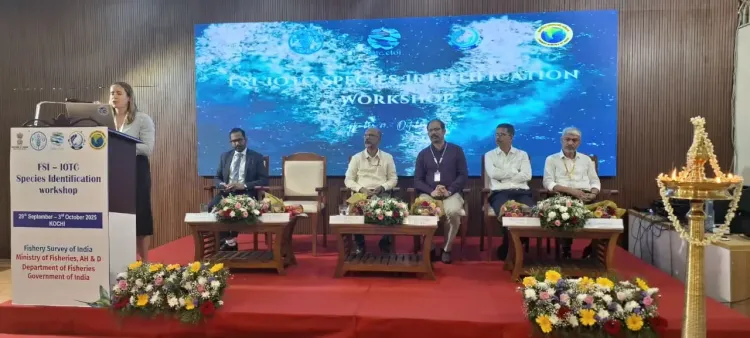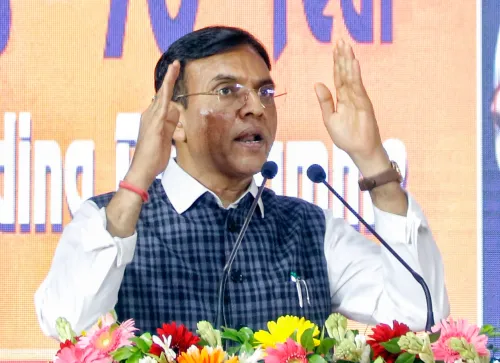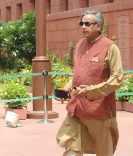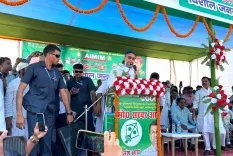Is India Preparing to Launch an E-Observer System for Fishing Monitoring?

Synopsis
Key Takeaways
- India's e-observer system will enhance fishing monitoring.
- 36,000 vessels equipped for real-time tracking.
- Data aids in sustainable fisheries management.
- Focus on international cooperation for migratory species.
- Workshop addresses global fisheries governance challenges.
Kochi, Sep 29 (NationPress) India is gearing up to implement an onboard electronic observer (e-observer) system designed to remotely monitor and document marine fish catches, as stated by Union Fisheries Secretary Abhilaksh Likhi on Monday.
This initiative, currently being developed by the Fishery Survey of India (FSI) under the Fisheries Ministry, intends to deliver precise, scientifically-based data for stock assessment and sustainable fisheries management.
Speaking at the inauguration of a five-day global workshop on species identification, organized by the Indian Ocean Tuna Commission (IOTC) and the FSI in Kochi, Likhi highlighted that science-backed, reliable data serves as India’s strongest defense against non-tariff barriers and accusations.
He pointed out that such data not only aids in conservation efforts but also protects India’s access to international seafood markets, ensuring a fair environment for exporters and safeguarding the livelihoods of fishers.
The Secretary also mentioned that nearly 36,000 fishing vessels have been equipped with transponders under the Pradhan Mantri Matsya Sampada Yojana (PMMSY), allowing for real-time monitoring of fishing activities.
He reaffirmed India’s dedication to regional and international collaboration, especially in managing highly migratory species like tuna, tuna-like fishes, and pelagic sharks.
“India will persist in its efforts toward the long-term sustainability of its fisheries while supporting the millions relying on this sector,” he stated.
The workshop also highlighted challenges faced by developing nations in global fisheries governance.
Dr. Grinson George, Director of the Central Marine Fisheries Research Institute (CMFRI), urged for a reevaluation of the global tuna quota allocation system, asserting that the current framework is biased against nations like India.
He also emphasized the importance of enhancing cold chain infrastructure to improve tuna exports by maintaining quality and minimizing post-harvest losses.
Lauren Nelson, representing the IOTC Secretariat, mentioned that the workshop would concentrate on establishing robust species identification and data collection frameworks for reliable stock assessments of tuna and related species.
Experts and officials from 12 countries, including Japan, France, Thailand, Indonesia, Malaysia, and South Africa, alongside 18 Indian officials from various coastal states, are participating in the event.
Additionally, senior officials from the FSI, the Centre for Marine Living Resources and Ecology (CMLRE), and other institutions addressed the assembly.









